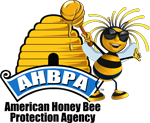Propolis
Bee Glue or Ancient Medicine?
Propolis (prä-pə-ləs): a brownish resinous material of waxy consistency collected by bees from the buds of trees and used as a cement in repairing and maintaining the hive. http://www.merriam-webster.com/dictionary/propolis
Propolis derived from the greek terms pro(before) polis(city) this substance was named for its observed use in the construction of bee hives. In common laymen terms it’s called bee glue, now if we take that as a literal definition of this amazing substance then we might believe that it basically serves a simple function of an adhesive. When you think of glue do you consider it to have antibacterial, antiseptic, or antifungal characteristics? If you were suffering from a scrape or abrasion would you want to spread glue on it? Would you ever consider digesting glue to help with an upset stomach? Of course I don’t think I would, but I can tell you that I would consider using….propolis.
Let me take your mind on a walk through history and more specifically the history of the ancient art of bee keeping. Bees and man’s love for their amazing by-products have been found as far back in history as 1,300 BC. That’s over 3000 years of the human species evolving side by side with their industrious little friends the bee. While honey has been the dominant resource we consume from bees we have historical records that suggest use of propolis that dates back to the ancient Egyptians, Romans, Greek and Jews.
The ancient Egyptians are historically known for their culture placing a high importance on preparing their dead for the after life. Part of that preparation is done through embalming which we suspect they learned from observing bees. When an invader is killed in a bee hive but can not be removed the inhabitants cover the body in propolis and wax. They do this to prevent the spread of disease that could be spread by the rotting carcass. This was confirmed in the 1960s when scientist observed the antibacterial properties of propolis.
You can even find records of Hippocrates the father of western medicine making mention to the medicinal uses of this incredible substance. This famous healer was known for using propolis to treat wounds and ulcers of any kind. Another Greek physician Pedanios Dioscorides from around 50 AD talks about how it can be used to draw out splinters, treat an old cough or skin disease.
In Jewish culture they used tzori (Hebrew for propolis) medicinally. There are biblical references to a Balm of Gilead that is described to be exactly what we call propolis today. This ancient balm was given to King Solomon by the Queen of Sheba as a gift. The Jews revered this substance as vital in their sacred rituals and used this as a component of their special incense that was burned twice daily in the Holy Temple of Jerusalem.
to be exactly what we call propolis today. This ancient balm was given to King Solomon by the Queen of Sheba as a gift. The Jews revered this substance as vital in their sacred rituals and used this as a component of their special incense that was burned twice daily in the Holy Temple of Jerusalem.
Throughout ancient Roman history you can find different individuals making reference to this wonder glue being used for a wide array of ailments ranging from pain relief of inflamed tendons or ulcers to the removal of tumors. At one point this substance was so widely used by physicians that it would actually sell at a higher price than honey.
Considering the respect these ancient cultures had for this divine substance, wouldn’t you agree that simply calling it bee glue does not do it justice? There are so many great resources today that can confirm the restorative and protective qualities of this bee medicine. I urge you to do some research of your own and I promise you wont be disappointed.
Cited Reference http://www.hindawi.com/journals/ecam/2013/964149/
Additional links: http://articles.mercola.com/sites/articles/archive/2009/11/17/This-Bee-Product-Has-Enormous-Benefits-for-Your-Health.aspx
http://www.drweil.com/drw/u/QAA400335/What-Are-the-Benefits-of-Bee-Propolis.html
Would you be interested in helping us save more bees so we can work to provide more research on the benefits of this and other great bee by-products our children could use in the future? Then make a simple donation to our non profit organization by visiting DONATE TODAY! so we can continue our no-kill bee hive extraction and relocation to help protect our friends the bees.
Central Texas Bee Rescue:
• works with landowners, renters and other people who have an unwanted bee population on their property
• places bees on properties that are interested in helping revitalize their flora and fauna
• offers classes and private lessons in beekeeping.
• is active in enacting legislation that will help keep the honeybees alive



2 Comments
How do you eat propolis? Thanks.
Josh
Great question! There are multiple herbal supplements that you can take, which can be found in pill form or tincture commonly. There is also the presence of propolis in raw honey. But if you are looking for the simple answer you eat it with your mouth silly. 😛
Comments are closed.